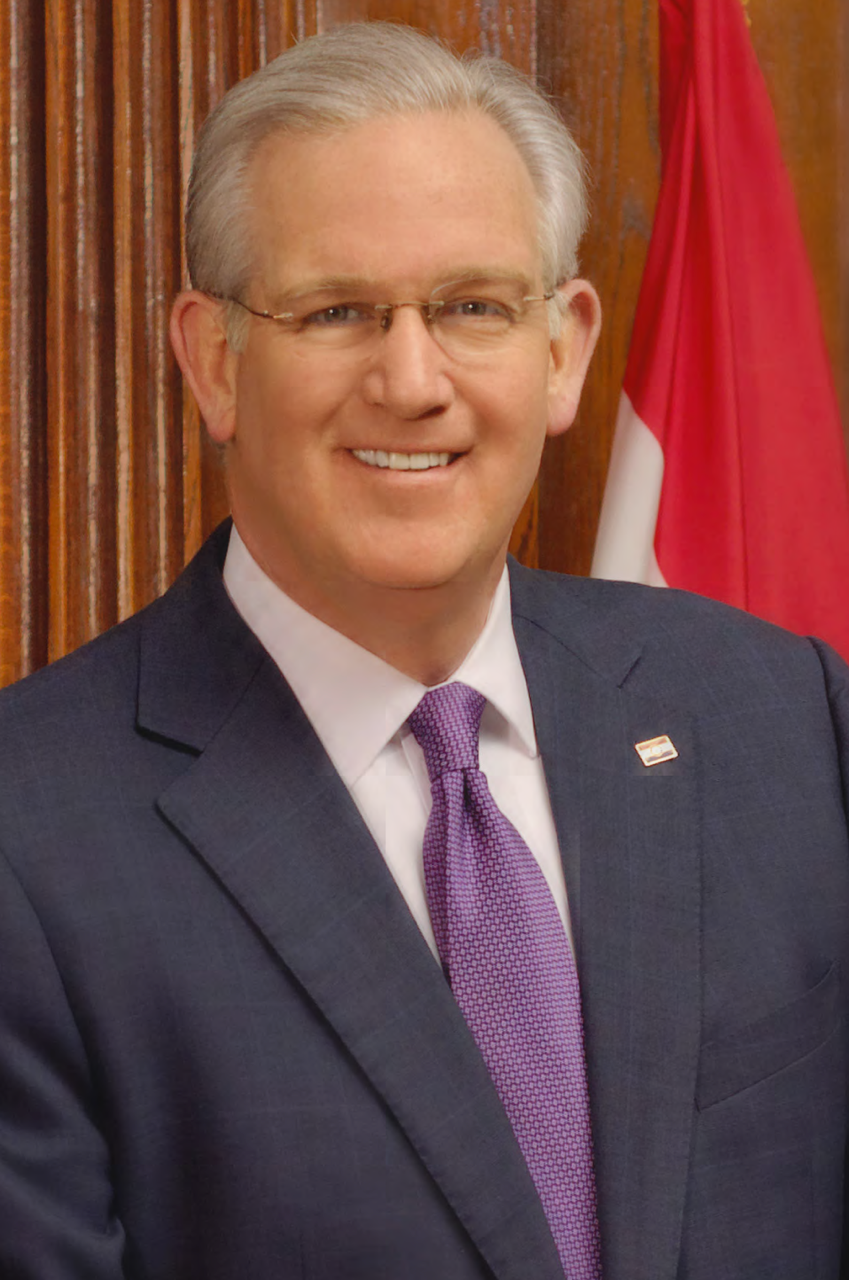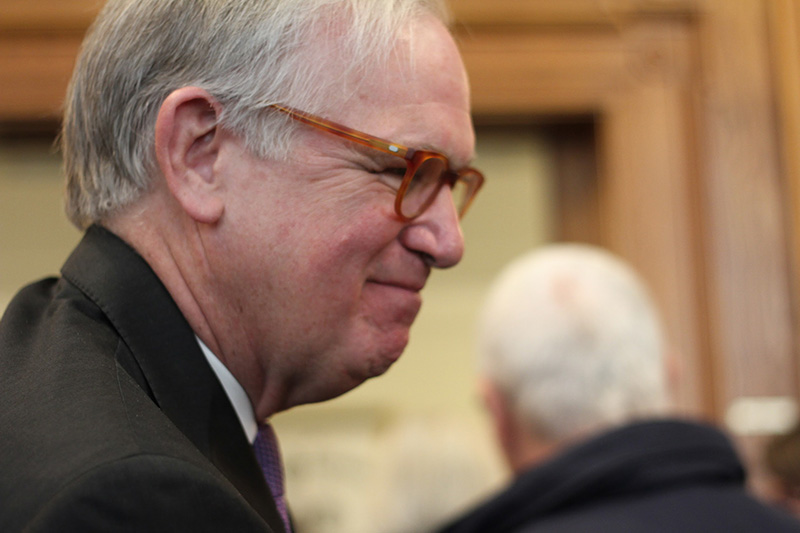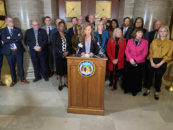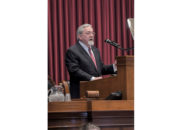JEFFERSON CITY, Mo. – The hotly-debated case of a wind energy company looking to build a transmission line across the northern half of the Show-Me State now lies in the hands of the Missouri Supreme Court.
The seven justices on Tuesday morning heard oral arguments in the Grain Belt Express Clean Line vs. Missouri Public Service Commission, potentially setting up the final decision in the matter, one that has been in the works for nearly a decade.
Attorneys arguments centered on debating the state statutes that apply to the granting of a certificate of convenience and necessity (CCN), and the distinctions between a line and area CCN.
Working as a private attorney now, former Gov. Jay Nixon stood before the court representing Clean Line, the company seeking to build a $2.3 billion, 780-mile high-voltage transmission line spanning from Kansas to Indiana.
At issue is a decision by the Missouri Public Service Commission, which rejected the power line based on the ruling written by a judge in the western district state appeals court in a different case.
Clean Line’s project was first denied in July 2015, when the PSC determined that it had little benefit for Missouri’s consumers. The company re-applied after agreeing to sell power to a coalition of municipal utilities in Missouri, but was denied again by the PSC in August 2017, who deemed the project worthy, but ultimately denied the request, saying that the court’s ruling in the ATXI case had tied their hands in the matter, and that Clean Line first needed approval from all counties in which the power lines would crossroads.
After that, Clean Line brought in Nixon, who had endorsed the project back in 2016 as governor. The former governor won the first round when the easter district state appeals court ruled that the commission was wrong about local pre-approval being necessary.
In Tuesday’s oral arguments, Nixon explained that the issue lies with an incorrect ruling, and explained the three different subsections in Missouri Revised Statute 393.170, which discuss the Public Service Commission’s power to grant certificates for construction of electric facilities and franchise rights to serve particular areas. Nixon said the state traditionally treated pre-approval from local counties as necessary only for service-area permits — not electric-line permits, as sought by Clean Line.
Using a laser pointer, Nixon explained the text of the law, saying that there were only two distinct certificates – area and line – and that only the franchise provision requires pre-approval.

“It was never the intent of my client to provide service,” Nixon told the court. “This is a transmission line.”
He argued that the PSC had made an “erroneous interpretation” of the decision, one that stood opposite of more than 70 years of precedent. He said that any other interpretation of the law would lead to “a myriad of other permissions making it impossible” for Clean Line to build the transmission lines, and that the case was putting the very jurisdiction of the PSC at stake.
He noted that during the last PSC vote, four of the five commissioners were in favor of granting the CCN, but felt they could not because of the ATXI decision.
Peggy Whipple, representing Missouri Joint Municipal, said that by denying the Clean Line application, it was denying 39 cities of millions of dollars in energy savings as well as benefits of renewable energy.
“This whole thing is a house of cards that should have fallen,” she said.
The seven-member state Supreme Court includes two judges appointed by former Gov. Nixon – George Draper III and Paul Wilson, who did not recuse themselves from the case, nor ask any questions during the arguments.
After the hearing, Mark Lawlor, Clean Line’s Vice President of development, answered questions from reporters, stating that Missouri’s regulatory approval was “essential” for the project to move forward.
Up until March, Missouri had been the only state standing in the way, but an Illinois appeals court overturned the state’s approval, saying that Clean Line did not qualify as a public utility because they owned no property.
Lawlor said the company could purchase a transmission line or substation and reapply, and said that though this project had taken years of work to get to this point, the company was still confident they could make it work.
But for now, all either side can do is wait for a judgment of the Court. When that might be, however, remains to be seen
Benjamin Peters was a reporter for The Missouri Times and Missouri Times Magazine and also produced the #MoLeg Podcast. He joined The Missouri Times in 2016 after working as a sports editor and TV news producer in mid-Missouri. Benjamin is a graduate of Missouri State University in Springfield.













